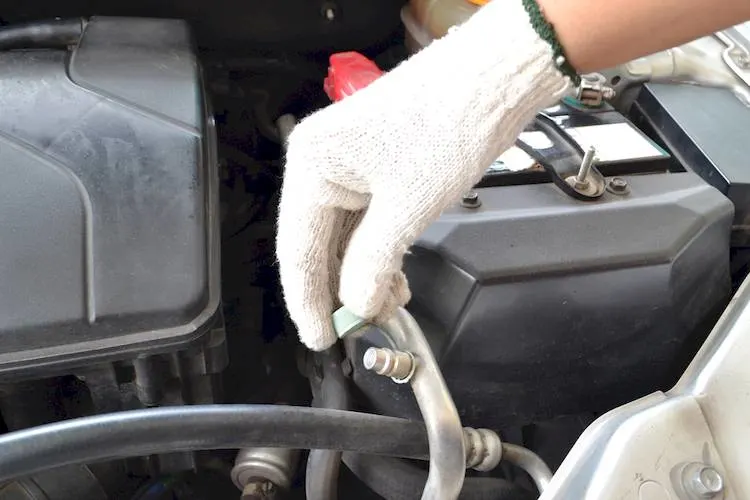
The air conditioning (AC) system in your car provides refuge from the soaring summertime temperatures.
The AC may have a clogged expansion valve as the cause, but when it doesn’t offer the anticipated cool comfort, irritation sets in.
To assist you in recognizing and quickly resolving the problem, this blog post will explain the signs of a clogged expansion valve in your car’s air conditioning system.
Role of the Expansion Valve
It is important to understand the function of the expansion valve in the air conditioning system before examining the symptoms of a blockage.
Controlling the flow of refrigerant into the evaporator is crucial for managing the system’s pressure and temperature.
This is where the expansion valve comes into play. The smooth operation of the air conditioning system is interfered with when the expansion valve clogs, resulting in several issues.
Signs of a Clogged Expansion Valve
- Poor Cooling: One of the most obvious symptoms of an obstructed expansion valve is a reduction in the cooling capacity of your automobile’s air conditioning system. Even when your air conditioner is running at full capacity and the air coming out of the vents seems warmer than usual, this could be a sign that there is a clogged expansion valve restricting the flow of refrigerant.
- Variable AC Temperatures: An obstructed expansion valve may lead to erratic interior temperatures in the vehicle. Abrupt bursts of warm air from the vents may occur after periods of adequate cooling. The variations in the refrigerant flow are a direct result of the expansion valve obstructing it, which results in an uneven cooling effect.
- Abnormal Pressure Readings: The pressure levels in your car’s air conditioning system can be determined by a qualified mechanic using certain gauges. You can notice erratic pressure readings if the expansion valve is obstructed. Common signs of an obstruction in the expansion valve include increased pressure on the high side of the system and decreased pressure on the low side.
- Icing on the Evaporator Coil: Ice buildup on the evaporator coil may be caused by a clogged expansion valve. The evaporator freezes as a result of the refrigerant building up due to the valve obstruction. Ice buildup on the evaporator coil and decreased vent airflow are clear indicators that the expansion valve needs to be serviced.
- Unusual Hissing Sounds: The AC system may make strange hissing noises if the expansion valve is obstructed. Usually, when the refrigerant is driven through the narrow valve, turbulence and pressure differentials are produced, which causes this noise. If the air conditioner is producing hissing noises, it is advisable to have the system checked for possible blockages.
- AC System Overheating: There may be a clogged expansion valve indicated by a hot air conditioning system. The whole AC system is overworked and may overheat as a result of the valve’s incapacity to appropriately control the flow of refrigerant. A clogged expansion valve may be the main culprit if you observe rising temps beneath the hood and suspect problems with the air conditioner.
Conclusion
One common problem that might reduce your car’s air conditioning system’s performance is a clogged expansion valve. Early detection of the symptoms is essential to halting more damage and guaranteeing a comfortable driving experience in hot conditions.
It’s advised that you consult an experienced automotive technician if you notice any of the symptoms listed above.
To keep you cool and comfortable while driving, prompt diagnosis and proper maintenance can help restore your car’s AC performance.
To ensure trouble-free cooling in your car, routine maintenance and preventative steps are crucial.
